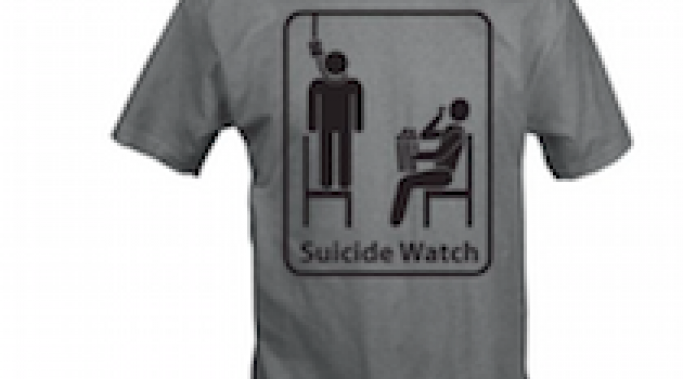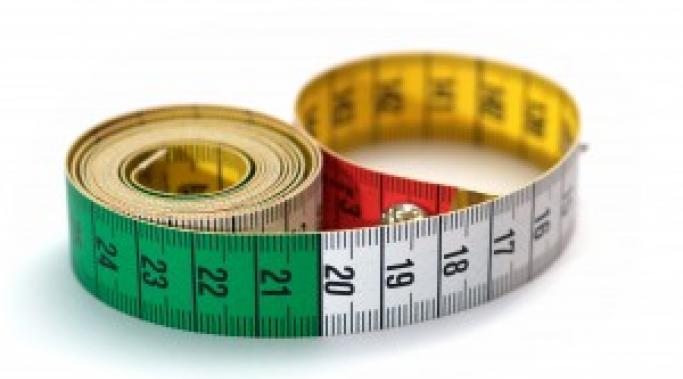Blogs
Crash diets are a hazard to your self-esteem and they need to be stopped. There are many reasons why people might crash diet, such as wanting to lose weight or getting into shape. Others might be following the latest celebrity trend or taking health consciousness too far. No matter what, crash dieting is not the answer (A Starvation Diet's Toxic Thoughts). Note that the terms "crash diet"and “diet” are often used synonymously but there is a difference. Strictly speaking, diet is simply what you eat. It can be a healthy lifestyle habit and not necessarily a short-term way to lose weight. For your own wellbeing, stop crash dieting and create healthy habits for life.
PANDAS (pediatric autoimmune neuropsychiatric disorders associated with streptococcal infections) is a disease that can account for psychiatric symptoms, but there is stigma around PANDAS. Recently I received a text message from Amber Becker, one of my readers, asking about my time in the state hospital system. Her daughter McKenzie has several psychiatric and developmental disorders, has been in and out of hospitals, and written off as untreatable. The State of Indiana wants to make her a ward of the state and put her in one of the hospitals I was treated at. Her fear is that if Indiana puts McKenzie in the state hospital, she'll be constantly sedated or repeatedly put in physical restraints. But here's the plot twist--PANDAS may be the cause of her problems. But there are no PANDAS specialists in Indiana, and even if there were, they're not covered by her insurance.
The winter blues are here and for those of us in all types of recovery, they can be especially tough (Stop Letting Winter Depression Freeze Your Happiness). If you're a recovering addict or alcoholic with the winter blues setting in, you are not alone.
I have a lot of introspective thoughts and I worry that in the past this has inevitably come across during conversations as me being self absorbed. There, I’ve said it. I guess that a lot of people can relate to this somewhat, but for a person with an anxiety disorder, introspective thinking can take on a whole new meaning. Being locked in this repetitive thought process has seriously distracted me from the important things in life and has even led to arguments. The insult that tends to get most thrown at me during a disagreement is that I am “selfish.” On some levels I can see how this could come across. During times when I am wrapped up in my own anxious thoughts, I can admittedly be less than fully aware of the hurt of others.
The anniversary of a traumatic event can send those of us with posttraumatic stress disorder (PTSD) into a tailspin, bringing up negative emotions and PTSD symptoms more than usual. Coping with these feelings and reactions can seem overwhelming, frustrating and even useless, but I have found that there are ways of managing them when that time of year rolls around. Trauma anniversaries can be an opportunity for growth and healing if you allow them to be.
Sometimes corporations promote mental health stigma. I saw an example of this recently and knew I had to write about it. Corporations may not know they promote mental health stigma but sometimes they do it anyway.
It's utterly common in modern culture to congratulate someone on their weight loss, but what does it mean when someone with binge eating disorder (BED) loses weight? Weight loss is never automatically a good thing (people lose weight because of physical illness, mental illness, and a variety of other reasons which aren't positive). But when someone has an eating disorder, what does it mean when they lose weight (Is It A Diet Or An Eating Disorder)? How should you react when someone who has binge eating disorder loses weight?
It can be quite easy to feel anxious and overwhelmed by life. Days are hectic, to-do lists are full, and we're just plain busy. This unrelenting busyness is overwhelming and can cause anxiety. Regain control of yourself and your life the fun way: by celebrating little accomplishments every day.
Implementing extreme self-care for depression in your life could be a vital tool on the journey to recovery from depression. Find out more about how the art of extreme self-care could be a transformative experience for your depression recovery journey and beyond.
Setting goals that work for you can improve your self-esteem. They give you a sense of purpose and something to work towards, as well as the motivation and means to get there (How Setting Intentions Improved My Confidence). Unfortunately, too many people set goals that aren’t right, resulting in disappointment and lowered self-esteem. However, setting the right goals can lead to personal growth and better self-esteem. Here are some ways of setting goals that work for you.









